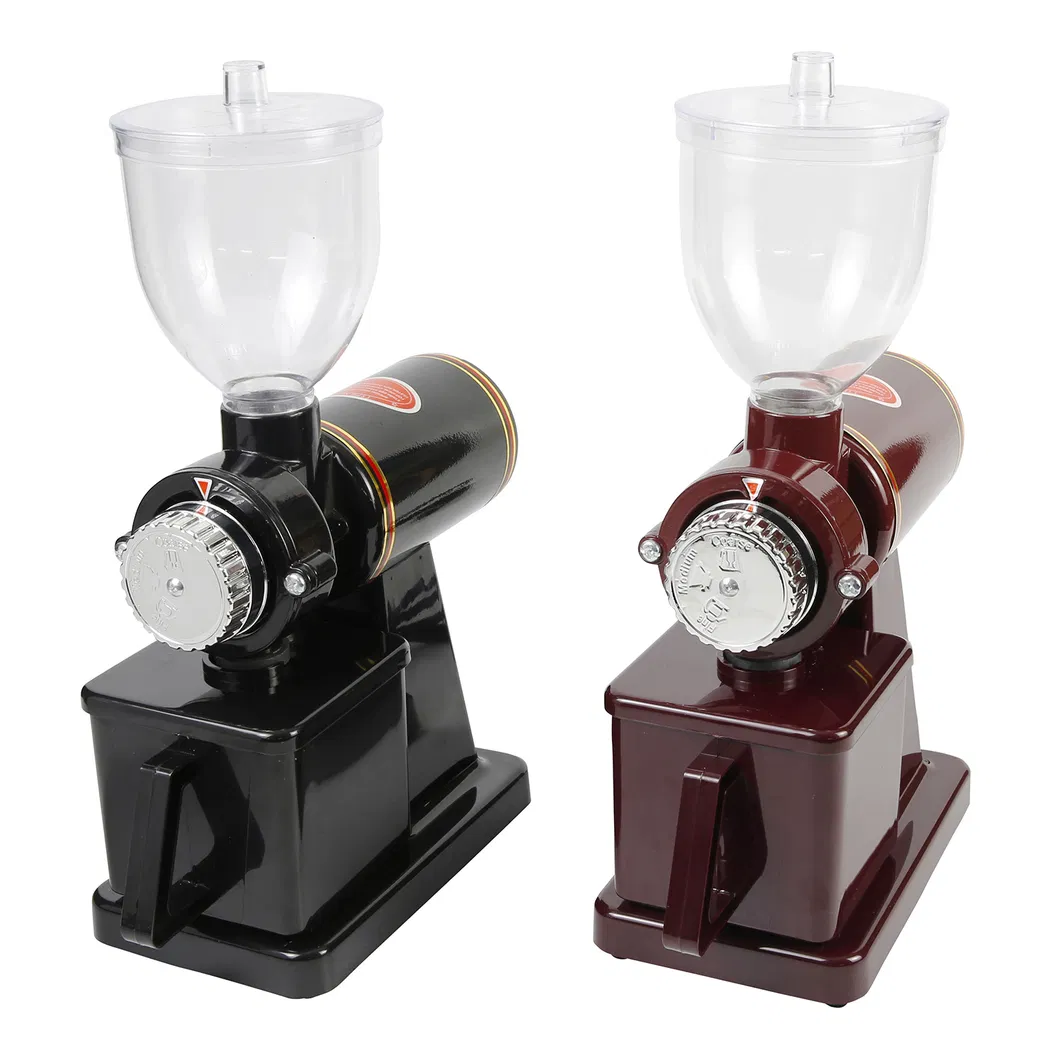Industrial Coffee Grinder Guide: Boost Efficiency and Top Quality
In the competitive landscape of coffee production, selecting the appropriate commercial coffee grinder plays a pivotal role in improving both effectiveness and item quality. Understanding the nuances of various grinder types and vital functions-- such as customizable grind setups and robust building and construction-- can significantly affect the last flavor profile of the coffee.
Recognizing Grinder Types
When picking an industrial coffee grinder, recognizing the various types readily available is crucial for optimizing both taste extraction and operational performance. The 2 main kinds of grinders are blade grinders and burr mills.

Inevitably, picking the best kind of mill is essential to maintaining top quality and effectiveness in coffee manufacturing, making it necessary for services to buy top quality burr grinders for optimum outcomes.
Trick Features to Consider
Choosing an industrial coffee mill calls for cautious consideration of a number of key attributes that can considerably influence both performance and the general coffee experience. One of the key elements to assess is the grinding system. Burr mills are typically liked over blade grinders, as they offer a regular grind dimension, which is crucial for optimal extraction and taste.
An additional vital attribute is the mill's ability. Depending on the quantity of coffee you need to procedure, select a design that can handle your requirements without giving up rate or high quality. In addition, think about the work setups supplied. A versatile mill with numerous settings enables you to tailor the work dimension to different developing techniques, enhancing the coffee's taste profile.
Evaluate the mill's sound level, especially in a hectic café or manufacturing setting, where too much sound can be turbulent. Spending in a mill that balances these features can considerably improve both operational performance and the high quality of the coffee offered.
Optimizing Grinding Refine
To achieve the finest outcomes in coffee preparation, enhancing the grinding process is necessary. The grind size considerably affects removal, taste, and general top quality of the made coffee.


In addition, keeping track of the grinding rate can maximize the process. Slower grinding usually generates less warmth, maintaining delicate tastes and aromas. Conversely, faster grinding may create extreme warm, adversely influencing the coffee's quality.
Upkeep and Care Tips
Appropriate upkeep and care of commercial coffee mills are vital for ensuring ideal performance and long life. Regular cleansing is the foundation of upkeep; deposit buildup can influence flavor and grinding performance. It is a good idea to cleanse the grinder after each use, wiping down the outside and eliminating any type of coffee grounds from the burrs.
In addition, evaluate the grinding burrs for deterioration. Boring burrs can compromise grind uniformity, so they ought to be replaced as necessary. Industrial Coffee Grinder. Periodically calibrating the mill is also vital, as this keeps the desired grind size for various developing methods
Lubrication of moving parts ought to be performed according to the manufacturer's requirements, as this lowers friction and prolongs the life of the equipment. It is necessary to make use of food-grade lubricants to ensure security and compliance with health policies.
Lastly, keep the grinder in browse around this web-site a completely dry read what he said and steady environment to avoid rust and deterioration. By sticking to these upkeep and care pointers, operators can improve the effectiveness of their commercial coffee grinders while guaranteeing top quality result and prolonged operational life.
Return on Investment Analysis
Reviewing the roi (ROI) for commercial coffee grinders is essential for companies seeking to maximize their coffee manufacturing capacities. An extensive ROI evaluation helps determine the financial viability of buying top notch grinders, enabling businesses to consider the first costs versus possible gains.
To perform a detailed ROI analysis, companies must take into consideration several crucial elements. Examine the purchase price of the mill, consisting of setup and any type of required adjustments to existing facilities. Next, calculate operational expenses, consisting of energy consumption, maintenance expenditures, and labor effectiveness enhancements. High-performance grinders typically result in lowered grinding time and enhanced throughput, which can considerably enhance efficiency.
In addition, think about the influence on item quality. Industrial Coffee Grinder. Superior grinders produce an even more consistent work size, which can boost flavor accounts and client complete satisfaction, ultimately driving sales. By boosting the top quality of the final item, businesses can justify greater this article pricing, bring about boosted income
Verdict
In recap, a commercial coffee mill plays a crucial function in boosting both efficiency and item quality within coffee manufacturing. By choosing high-quality burr grinders outfitted with necessary features such as adjustable work setups and resilient building and construction, businesses can make certain optimal flavor removal. Additionally, routine upkeep is crucial for sustaining grinder efficiency and optimizing client complete satisfaction. Ultimately, the calculated financial investment in a reliable grinder adds significantly to boosted earnings and competitiveness in the coffee market.
In the competitive landscape of coffee manufacturing, picking the right commercial coffee mill plays a crucial function in improving both effectiveness and product quality. The 2 key kinds of mills are blade grinders and burr grinders. Within the burr mill classification, there are flat burr mills and conelike burr mills, each with its advantages. Burr mills are normally liked over blade grinders, as they supply a constant grind dimension, which is critical for ideal extraction and flavor.
In recap, a commercial coffee grinder plays a crucial function in enhancing both effectiveness and product quality within coffee manufacturing.